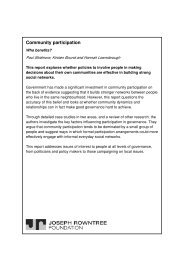
YUMPU automatically turns print PDFs into web optimized ePapers that Google loves.

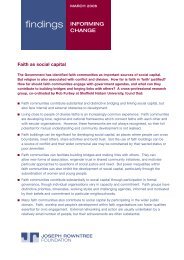
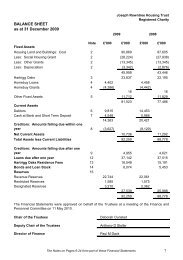

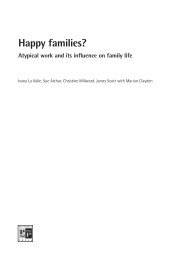

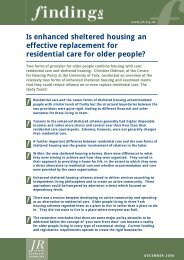
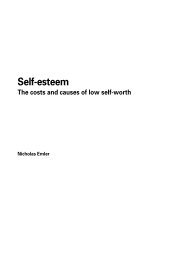

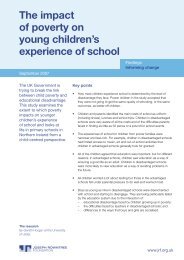

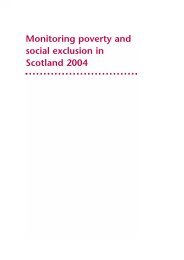

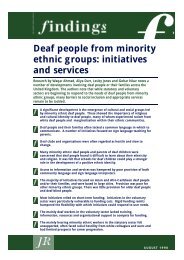
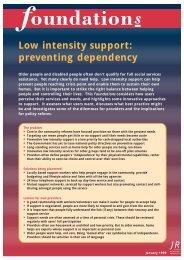
Social Policy Research 131 September 1997 The legacy of parental divorc e : social, economic and family experiences in adulthood P a rental divorce during childhood can have a negative effect on adult lives, but some difficulties also relate to personal and family circumstances that p recede the break-up. Kathleen Kiernan of the London School of Economics used longitudinal data on 33-year-old adults from the National Child Development Study to compare the economic and family situations of those f rom divorced backgrounds with those for their contemporaries raised by both p a rents. The study showed that: Pre-divorce factors, especially financial hardship, played an important part in explaining the increased likelihood that children whose parents divorced would lack qualifications, be unemployed or be living in social housing as adults. Pre-divorce circumstances were less influential in accounting for why children of divorce differed in their personal relationships and parenthood behaviour in adulthood. Children who grew up with both their parents became better qualified and were in better jobs as adults largely due to their families being socially and economically advantaged to begin with and not necessarily because their parents had stayed together. Women from divorced families were almost twice as likely to become teenage mothers as their contemporaries, while men were more likely to become fathers b e f o re they were 22. These dif f e rences may be explained both by the family’s situation before the separation and the childr e n ’s experiences after this. Women whose parents had divorced were more likely to give birth as single or cohabiting mothers, even allowing for family background and the greater tendency for teenage mothers to give birth outside marriage. A similar pattern emerged for men becoming fathers outside marriage. Women and men who experienced parental divorce during childhood were more likely to have experienced the break-up of their own first cohabitation or marriage than those from families where the parents stay together. Controls for childhood and adolescent background factors produced only a modest reduction in the chances of partnership breakdown. Women who were aged over 20 when their parents divorced were little different in terms of educational attainment, housing, and income and becoming a young mother, to those whose families had remained together. By contrast, men who were young adults when their parents separated were economically disadvantaged compared with contemporaries from families where the parents stay together. Men and women who were over 20 when their parents divorced were more likely to have cohabited and to have experienced the break-up of their own partnerships by the time they were 33 compared with those whose parents remained together.